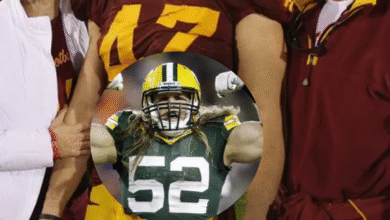Kelly Clarkson Battled Years of Depression After Cruel Body-Shaming Comments
OPINION: This article may contain commentary which reflects the author's opinion.
She won American Idol with a voice that shook the nation. But behind the spotlight, applause, and Grammy wins, Kelly Clarkson was quietly fighting a different battle—one rooted in years of cruel comments about her body.
Despite her success, Clarkson became a frequent target of tabloid headlines and online critics who reduced her worth to her weight. Whether she gained or lost a few pounds, someone always had something to say—and over time, it took a toll no one saw coming.
In a candid interview, Clarkson admitted that the relentless body-shaming led her into a deep depression. “People assume that because you’re smiling and working, you’re fine. But there were days I couldn’t get out of bed,” she shared. “They didn’t know the comments echoed louder than the music.”
What made the criticism sting more was its consistency—from talk show panels to anonymous social media trolls, the message was the same: her body wasn’t “good enough.” Even at her healthiest, she was judged more for how she looked than how she lived or sang.
Clarkson says she often tried to hide the pain, keeping the focus on her work, family, and fans. But internally, she struggled with anxiety, shame, and self-worth. “I felt like no matter what I did, I was either too much or not enough,” she said.
It wasn’t until recent years that Clarkson began to reclaim control of her narrative. Therapy, motherhood, and time helped her separate her value from outside opinions. She now speaks openly about mental health, aiming to dismantle the stigma around body image and depression—especially for women in the public eye.
Today, Clarkson is not just a music icon—she’s a voice for resilience. Her honesty has inspired countless fans who’ve faced similar judgment, reminding them that healing is messy, nonlinear, and entirely worth it.
Her story isn’t about the critics who tried to break her.
It’s about the woman who refused to let them win.
And in sharing her pain, Kelly Clarkson has found her power—louder and more lasting than any song.



